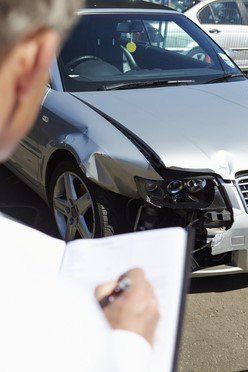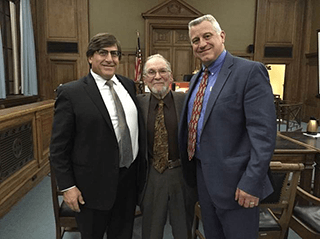New Law Remedies Connecticut Supreme Court’s Slander of Horses as Inherently Dangerous and “Vicious”
New Law Remedies Connecticut Supreme Court’s Slander of Horses as Inherently Dangerous and “Vicious”
One of the more enjoyable privileges of my life was my service on the Connecticut Governor’s Horse Guard mounted cavalry unit. The Horse Guard does tremendous work and has a long and storied tradition, and being a part of the Guard gave me a good excuse to be around and ride horses, a lifetime passion of mine.
I thought of my time in the Guard recently when Connecticut’s governor signed House Bill 5044 into law. The bill, which the Connecticut House of Representatives passed in a unanimous 138-0 vote, declares horses to not be inherently dangerous and provides liability protections for horse owners.
With so many pressing issues facing the state, one may wonder why a bill addressing the question of whether horses are dangerous animals was the subject of discussion and legislation. The answer is that the bill was a response to a decision earlier this year by the Supreme Court of Connecticut in which the court ruled that horse owners have a duty to take reasonable steps to prevent equines from causing injuries, and that horses “belong to a species naturally inclined to do mischief or be vicious.”
While most no one quibbles with the idea that horse owners, like all other animal owners, should take reasonable steps to prevent injuries, the Court’s designation of horses as inherently dangerous caused an understandable uproar in an industry which the governor’s office says contributes $3.5 billion annually to Connecticut’s economy and supports about 28,000 jobs.
After the Court’s decision in March, Governor Dannel Malloy introduced House Bill 5044, entitled “An Act Concerning Domesticated Horses.” As passed into law, the Act provides, in its entirety:
(a) In any civil action brought against the owner of any horse, pony, donkey or mule to recover damages for any personal injury allegedly caused by such horse, pony, donkey or mule there shall be a presumption that such horse, pony, donkey or mule is domesticated, is not inherently dangerous and does not possess a vicious propensity. Such presumption may be rebutted by evidence that such horse, pony, donkey or mule was not raised or kept by a person.
(b) In any civil action brought against the owner of any horse, pony, donkey or mule to recover damages for any personal injury allegedly caused by such horse, pony, donkey or mule, evidence that such horse, pony, donkey or mule previously caused an injury to a person shall not be sufficient to establish a duty for such owner to restrain such horse, pony, donkey or mule as to prevent such horse, pony, donkey or mule from causing injury.
(emphasis added)
As an attorney who represents individuals who have suffered serious injuries due to the negligence of others, I certainly agree that horse owners need to be responsible and exercise reasonable care in handling their horses and should be held accountable in the event that they breach that duty of care. As a horse lover, however, the wholesale slander of these beautiful animals by the Court, and the unfair liability implications of the Court’s decision, warranted a corrective legislative response. House Bill 5044 got that response exactly right.
Nugent & Bryant: Your Connecticut Personal Injury Law Firm
At Nugent & Bryant, we have worked hard to build a reputation as one of Connecticut’s premier law firms advocating for accident victims’ rights. We are an exceptional law firm that has been achieving results for our clients over 30 years. If you have suffered a personal injury or catastrophic injury, call us today at (203) 795-1111 for a free consultation.
This article has been prepared by Nugent & Bryant for informational purposes only and does not, and is not intended to, constitute legal advice. The information is not provided in the course of an attorney-client relationship and is not intended to substitute for legal advice from an attorney licensed in your jurisdiction.
Tell Us About Your Case
Contact Us
We will get back to you as soon as possible.
Please try again later.
Nugent Lawyers © 2009 - 2024. All Rights Reserved - Disclaimer


